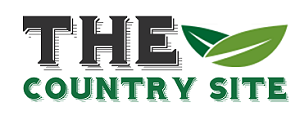Why do some employers require a medical certificate online?
Digital certificate requirements stem from enhanced verification capabilities, streamlined administrative processes, and improved fraud prevention measures that protect both employers and employees through secure authentication systems provided by NextClinic. These requirements reflect modern workplace adaptation to digital healthcare delivery while maintaining professional documentation standards and regulatory compliance. Contemporary organisations recognise that digital documentation provides enhanced authenticity verification, faster processing times, and improved record-keeping capabilities that support efficient workforce management while maintaining employee privacy and healthcare confidentiality throughout the medical certificate online verification process.
Enhanced verification capabilities
Digital certificates provide superior verification features through direct healthcare provider authentication, real-time validation systems, and tamper-evident security measures that eliminate traditional fraud risks associated with paper documentation. These verification capabilities include instant physician credential checking, platform legitimacy confirmation, and automated authenticity validation, ensuring certificate genuineness. Enhanced verification includes cryptographic signatures that prevent document modification, timestamp validation that confirms issuance timing, and direct healthcare provider contact information that enables immediate verification inquiries when needed for administrative purposes or compliance requirements.
Administrative efficiency improvements
Digital certificate processing reduces administrative overhead through automated verification systems, electronic storage capabilities, and integrated HR software compatibility that streamlines absence management workflows. These efficiency improvements include eliminating manual document handling, reducing processing time, and automated compliance tracking that reduces administrative burden. Administrative benefits include instant document receipt, automated filing systems, and electronic audit trails that support regulatory compliance while reducing manual processing requirements.
Fraud prevention measures
Digital authentication provides comprehensive fraud prevention through advanced security protocols, physician verification systems, and platform legitimacy checking that eliminates standard fraudulent documentation methods. These prevention measures include multi-layered authentication, secure transmission protocols, and audit trail maintenance, creating comprehensive fraud deterrence.
- Advanced encryption prevents unauthorised document modification and tampering
- Physician digital signatures ensure authentic healthcare provider authorisation
- Platform verification confirming legitimate telemedicine service provider status
- Real-time authentication enables immediate certificate validity confirmation
- Audit trail maintenance, tracking document issuance, and verification activities
Fraud prevention capabilities protect employers from liability issues while ensuring legitimate employee absence claims receive appropriate support through verified medical documentation that maintains professional healthcare standards and regulatory compliance.
Workforce management integration
Digital certificates integrate seamlessly with existing HR management systems, payroll processing software, and absence tracking platforms, creating unified workforce management capabilities. These integration features include automated absence recording, payroll adjustment processing, and compliance reporting that streamline administrative workflows. Integration capabilities include API connections with HR software, automated absence calendar updates, and compliance reporting systems that reduce manual data entry while maintaining accurate workforce management records and regulatory compliance documentation.
Cost reduction advantages
Digital certificate processing reduces operational costs by eliminating manual processing requirements, reducing administrative staff time allocation, and streamlining verification procedures that improve overall efficiency.
- Eliminated phone verification, reducing communication costs and administrative time requirements
- Reduced postal expenses through instant electronic document delivery and processing
- Decreased administrative overhead through automated verification and filing systems
- Streamlined processing, reducing staff time allocation for absence management activities
- Improved efficiency, enabling administrative staff to focus on higher-value workplace management tasks
Cost advantages demonstrate measurable financial benefits while improving service quality through faster processing times and enhanced security features that protect employers and employees throughout the absence management process. Employers require digital medical certificates because they provide superior verification capabilities, administrative efficiency, and fraud prevention measures that protect organisational interests while supporting legitimate employee health needs. These requirements reflect modern workplace evolution toward digital processes that enhance security while reducing costs and improving operational efficiency.






